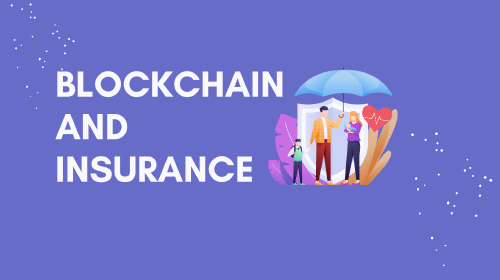Top 5 Companies Building on Ethereum
Salomon Kisters
Jul 27, 2022This post may contain affiliate links. If you use these links to buy something we may earn a commission. Thanks!
The use-cases for blockchain and decentralized ledger technologies are increasing every day. Businesses from every industry are exploring new opportunities and solutions possible with this innovation.
Though the blockchain industry is still in its early stages and the technology is yet to see widespread use, many companies worldwide have already started working on integrating blockchains into their corporate model.
Most of these companies have been particularly interested in the Ethereum blockchain. Ever since its launch in 2015, the blockchain has shown incredible potential for development and growth over the years. It underwent some massive upgrades to fulfill rapidly increasing demands of scalability and flexibility in the IT world.
As a result, Ethereum is home to more than 3,000 decentralized applications (DApps). Moreover, a few months back, Adam Cochran – a professor and senior marketing expert – shared a Twitter thread in which he revealed the names of more than 350 international and multinational corporations that are building on or incorporating their new projects on the Ethereum blockchain.
Following are some of the most exciting companies using Ethereum’s decentralized database technologies.
Ubisoft
Anyone slightly interested in video games is very familiar with the name “Ubisoft.” This French video game development and distribution company gave us several masterpieces, including Assassin’s Creed, Far Cry, and Watch Dogs.
For the past many months, this video game giant seems to have been quite interested in Ethereum. The company has backed up to eight blockchain startups as part of its Entrepreneur Labs project. Moreover, they have joined hands with the famous blockchain games studio, Planetarium, to develop their new RPG game, Nine Chronicles.
And, if that is not enough to convince you, Ubisoft recently launched their own project, Rabbids Tokens, on the Ethereum blockchain. It is a series of NFTs built with the ERC-721 token standard. Each NFT represents a scary rabbit avatar with unique characters. The project is based on the Raving Rabbids series by Ubisoft.
Apart from an experiment with blockchain technology, the Rabbids Tokens project was part of a charity. All the funds raised went straight to the UN’s children’s charity, i.e., UNICEF.
The collection is all sold out by now. However, we can expect more Ubisoft blockchain-based projects in the future.
“Rabbids Tokens were the first step,” says Nicolas Pouards, Ubisoft’s blockchain initiative director. “Other projects will hopefully follow,” he adds, and they “would like to continue to explore its potential as well its growing ecosystem.”
ING
The Dutch multinational bank corporation, ING, has been involved in multiple projects built on blockchain for many years now. When the bank started testing the decentralized ledger technologies, the options were limited, and Ethereum was the only reliable platform. Over the years, the blockchain has significantly improved itself and has become more beta-tested than any other project in the industry.
After many technical developments, such as incorporating smart contracts, introducing different token standards, shifting to the Proof of Stake model, and enabling layer two protocols, Ethereum has grown into a vast and diverse ecosystem. When asked about the reason for sticking with this seven-year-old database, Cees van Wijk – IT chapter lead in the ING DLT team – replied, “There’s a large developer base. It’s battle-tested, and there’s a huge ecosystem around it.”
Reportedly, ING is part of three major Ethereum-based initiatives: Komgo, Fnality, and Bamboo. Komgo is a company formed with the collaboration of fifteen of the world’s largest corporate names, including ABN AMRO, BNP Paribas, Citi, Shell, ING, and more. Komgo will help these corporations to digitize their trading and commodity finances through open-source blockchain solutions.
Fnality provides an Ethereum-based payment system that is suitable for inter-operating business platforms. Finally, Bamboo offers bilateral letters of credit for blockchain-based transactions.
ixo Foundation
ixo Foundation is a non-profit determined to use blockchain’s transparent and traceable nature for human-scale development and sustainable economic growth.
One of the many unique characteristics of open-source, decentralized blockchains, like Ethereum, is that each transaction taking place on the ledger is visible to all users. In this way, an object within the network can be traced very quickly and economically. Moreover, all the data recorded on a blockchain is immutable, hence, totally reliable.
Anne Connelly (CEO of ixo Foundation) and her team are working on building a protocol on the blockchain that will allow people to log and verify their welfare activities. For example, if a person participates in community service, charitable activity, or socially beneficial tasks, you can record the hours spent working. The recorded information can then be verified using decentralized ledger technologies to fulfill the eligibility criteria for various grants or subsidies.
You might also find it interesting that ixo Foundation has collaborated with UNICEF to develop a blockchain-based application called Amply. This app is designed to efficiently and quickly take attendance of the students attending UN-subsidized preschools. Otherwise, teachers had to note it manually and then physically submit the records, a procedure that was time-consuming and prone to error.
“I think it’s going to be massively pervasive in a year or two,” Connelly said when asked about his opinions on the Ethereum blockchain. “Typically, they say with this level of innovation, it takes a lot longer to happen than we expect, but when it does, it’s much more impactful.”
uPort
As more businesses shift towards online platforms, the number of websites you have to stay logged in to is continuously growing. For example, a regular user has to take care of his email ID, online-banking account, cloud storage ID, social media accounts, and much more. Keeping track of credentials for each platform can get confusing very quickly. Users often end up losing passwords and forgetting their user ID.
Companies like Google and Apple provide an excellent solution to this problem by offering a universal ID that can be linked to multiple platforms. Though this works incredibly well for our traditional centralized internet, there is still no reliable and equally functional solution for the decentralized online world. Moreover, if you use these services, you end up giving control of your data to these centralized corporate organizations.
uPort is an Ethereum-based startup that aims to provide a universal identification for decentralized applications and services built on the Ethereum blockchain ecosystem. Instead of using a unique address or anonymous serial numbers, it allows developers to identify and verify users in a more secure and easy-to-use manner.
More recently, the team behind uPort announced that the platform had been transitioned into two separate programs: Serto and Veramo. Serto is focused on enabling individuals and enterprises to use DApps without compromising data privacy and portability. Whereas, Veramo allows them to worry less about interop and vendor lock-in by creating decentralized identifiers and verifiable credentials.
Global Grid Plus
Global Grid Plus is another Ethereum-based project that integrates renewable energy production technologies with blockchain and DLTs to create a more sustainable and credible system.
Lead Walter (lead architect and Global Grid Plus) and his team are working on the development of a virtual energy grid that will be merged with the national energy system. Once the development is complete, the system will allow consumers to purchase fractions of, as well as enormous amounts of electricity.
“Already, we’re seeing that blockchains, especially Ethereum, because of its ability to facilitate these token launches, are providing access to liquid capital for the purpose of building new businesses that far exceeded what existed before, be it in investment banking, venture capital or private equity,” said Walter.
The energy will be distributed to decentralized tokens by tokenizing the entire network. Just like any other decentralized cryptocurrency, these tokens will be easy to store and conveniently tradable. If a user has extra unused tokens, they can easily sell them to someone else.
Moreover, since crypto tokens are so easy to divide into fractions, users will be able to buy even minimal amounts of energy resources. No matter if you need power for an entire office or just to illuminate a bulb for 20 minutes, with this system, you can purchase exactly the required amount of electricity.
Since the network includes both regulated and deregulated business models, Global Grid Plus is much more flexible than the traditional energy production and distribution companies, dealing with versatile market dynamics more efficiently.
Conclusion
As the blockchain and cryptocurrency industry continues to grow in popularity and relevance, enterprises and developers worldwide realize the innumerable ways they can benefit from using this technology.
Ethereum is the preferred blockchain protocol for most businesses, thanks to the already diversely developed ecosystem.
Stay informed with the latest insights in Crypto, Blockchain, and Cyber-Security! Subscribe to our newsletter now to receive exclusive updates, expert analyses, and current developments directly to your inbox. Don't miss the opportunity to expand your knowledge and stay up-to-date.
Love what you're reading? Subscribe for top stories in Crypto, Blockchain, and Cyber-Security. Stay informed with exclusive updates.
Please note that the Content may have been generated with the Help of AI. The editorial content of OriginStamp AG does not constitute a recommendation for investment or purchase advice. In principle, an investment can also lead to a total loss. Therefore, please seek advice before making an investment decision.

What Big Companies Are Investing In Cryptocurrency?
Dozens of publicly traded companies hold Bitcoin. Let's look at each of these in more detail.

Can a Blockchain be an Audit Trail?
Auditing and blockchain are two topics that seem to have several touchpoints. Let's have a detailed look.

The State of Blockchain in the Insurance Industry: How Trustable Transactions, Enhanced Transparency, and Automation Can Disrupt Everything
Blockchain technology is set to radically disrupt traditional insurance. Read more about Trustable transactions, enhanced transparency, and automation.
Protect your documents
Your gateway to unforgeable data. Imprint the authenticity of your information with our blockchain timestamp